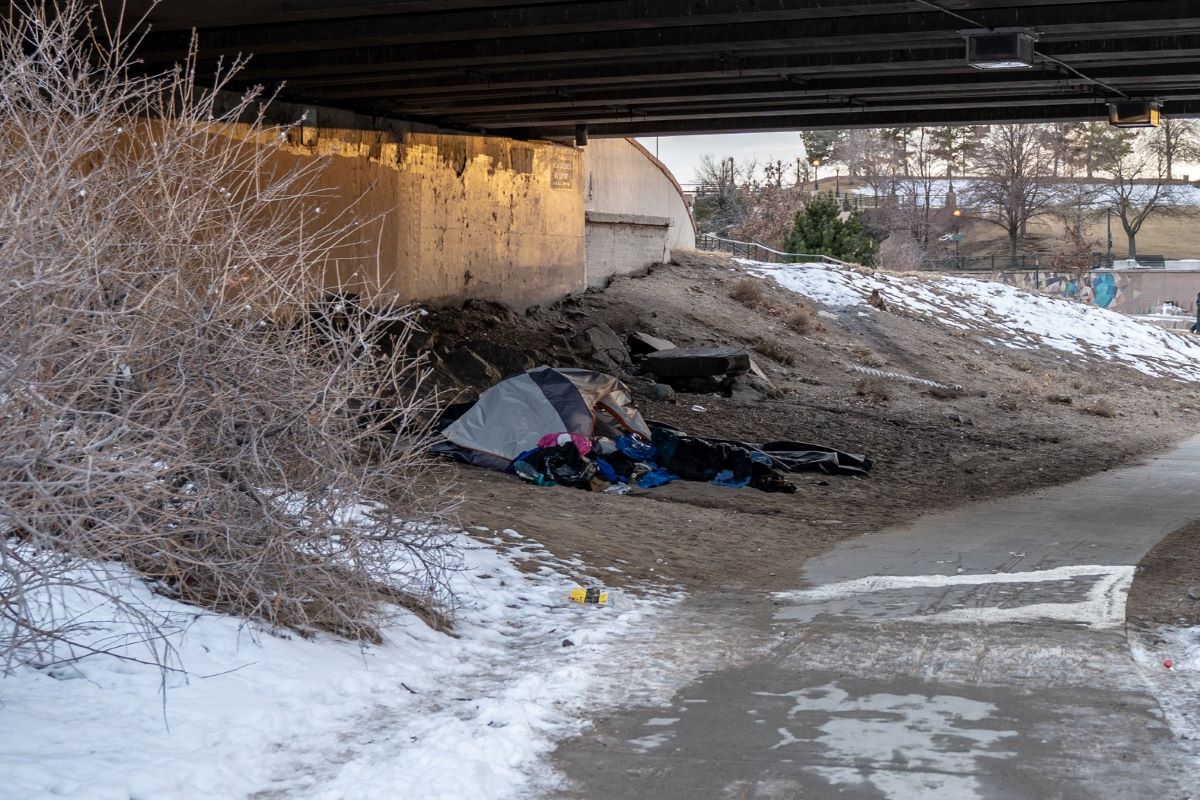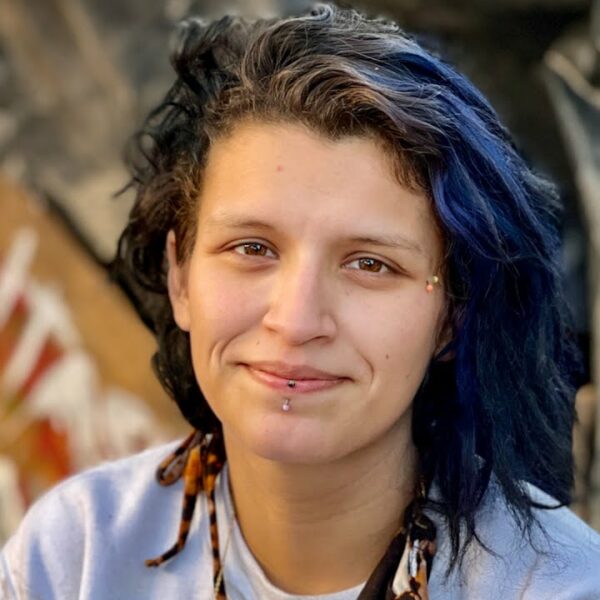A group of 40 Denver-area nonprofits is calling on city leaders to stop sweeping homeless encampments during freezing weather, according to a letter sent to the city council on January 9.
The letter comes after multiple homeless people reported being swept by city crews in weeks that included icy winds and blizzard conditions. City officials say they are enforcing the law and are trying to help people access warming centers and overnight shelters during cold nights. However, Denver’s nonprofit community says the sweeps prevent many from accessing the services they need.
Signatories to the letter include legal advocacy groups such as the ACLU of Colorado, homeless service providers like Mutual Aid Monday and Janet’s Kitchen, and national organizations like the National Law Center on Homelessness and Poverty.
“Houseless people are being prevented from going inside in the freezing cold to get warm because they have to stay out to keep the City from taking all their property in a sweep,” the letter reads in part. “When people do go inside, they lose all their property when they get out. This does not help people get inside to be warm, and it leaves people out in the streets in the cold with nothing.”
Homeless sweeps have been a hot topic of debate in Denver for more than a decade. However, it came under increased scrutiny during the pandemic as people were forced to shelter at home and local unsheltered homelessness continued to grow.
Unsheltered Homelessness in Denver Increased by 134%
According to data from the federal one-night count, unsheltered homelessness in Denver has increased from 554 people in 2019 to more than 1,300 people sleeping outside each night in 2022. That represents a nearly 134% increase.
At the height of the pandemic in June 2020, Denver stopped sweeping encampments for about three months to determine if there was a better solution. The city approved the use of four safe outdoor spaces, which are city-sanctioned campsites run by a local service provider called the Colorado Village Collaborative. Local leaders have also approved 12 safe parking lots for people living in their cars to park overnight safely.
Once the calendar turned to 2021, however, Denver resumed the sweeps. A report by the Denver Post suggests that the city cleared more encampments during the first six months of 2021 than it did in all of 2020. Most of these sweeps were in areas leading to Coors Field, which hosted the 2021 MLB All-Star Game that summer, according to the Denver Voice, a local street newspaper.
The practice of sweeping encampments of houseless people is shaping up to be a defining characteristic of the 2023 municipal elections in Denver as well.
Kelly Brough, the former CEO of the Denver Metro Chamber of Commerce and a candidate for mayor, told Denverite that she would stop sweeping encampments because “we all know sweeps don’t work, moving a tent across a border, pretending we solved someone’s problem, it doesn’t work.”
Denver’s real estate community members have pushed back against Brough’s plan. Andrew Feinstein, the CEO of EXDO Development and a board member of the Downtown Denver Partnership, told Denverite that there’s “no way” Brough actually supports stopping the sweeps.
“I think we have to have deterrent mechanisms in place to disincentivize people from sleeping on the streets,” Feinstein said.
Mike Johnson, a former state senator and a candidate for mayor, has also said he could end homelessness in Denver within his first term. That plan includes building 20 “micro-communities” that include city-sanctioned campsites and converted hotel space, Johnson told Denverite. However, Johnson pledged to continue sweeping encampments that include people who refuse services.
Increase Warming Center Operations in Denver
Instead of sweeping encampments, Denver’s nonprofit community is calling on the city to expand its warming center operations. Warming centers are places that houseless people can go to escape the cold but are not permanent shelters. The letter says Denver does not have a consistent policy regarding when warming centers are open, despite the local health department agreeing to “revisit” their standards for opening the centers.
“When sweeps are conducted in freezing weather, this process itself is dangerous and traumatizing,” the letter reads. “Houseless people are forced to pack all their belongings in the cold and snow, often getting themselves and their property wet, dragging property long distances in the cold. When someone is sick or disabled, this process is even worse.”
“People are already often dehydrated, malnourished, sleep deprived, dealing with stress, trauma, anxiety, mental health, and physical health challenges. The stress of moving is bad enough without facing freezing temperatures and wet snow,” it continued.
How You Can Help
The pandemic proved that we need to rethink housing in the United States. It also showed that aid programs work when providing agencies and service organizations with sufficient funds and clear guidance on spending aid dollars.
Contact your officials and representatives. Tell them you support keeping many of the pandemic-related aid programs in place for future use. They have proven effective at keeping people housed, which is the first step to ending homelessness.












